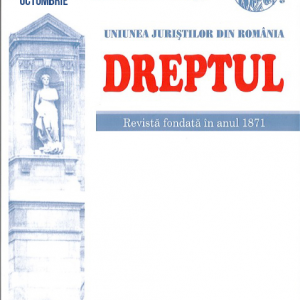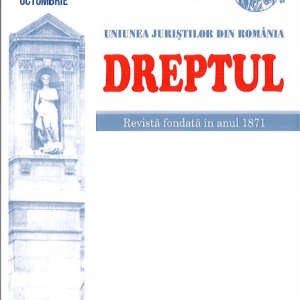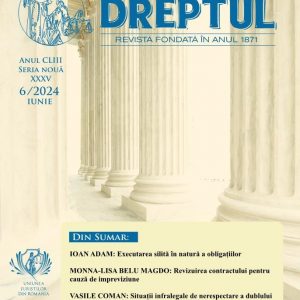-

-
 Furt calificat. Obiect material, bun mobil aparținând patrimoniului cultural național. Sit arheologic și zone cu patrimoniu arheologic protejat. Aplicarea legii penale mai favorabile. Grup infracțional organizat Faptele inculpaților de a constitui un grup infracțional organizat, urmate de comiterea unor detecții neautorizate într-un sit arheologic protejat, aparținând patrimoniului cultural național, și sustragerea de artefacte arheologice mobile întrunesc elementele infracțiunilor de: constituire a unui grup infracțional organizat, prevăzută în art. 367 alin. (1) C.pen., accesul cu detectoare de metale și utilizarea lor în zonele cu patrimoniu arheologic, fără autorizarea prealabilă, prevăzută în art. 26 alin. (1) din Ordonanța Guvernului nr. 43/2000 privind protecția patrimoniului arheologic și declararea unor situri arheologice ca zone de interes național, republicată, și furt calificat asupra unui bun care face parte din patrimoniul cultural, prevăzută în art. 228, 229 alin. (2) lit. a) C.pen., cu aplicarea art. 5 C.pen.
Furt calificat. Obiect material, bun mobil aparținând patrimoniului cultural național. Sit arheologic și zone cu patrimoniu arheologic protejat. Aplicarea legii penale mai favorabile. Grup infracțional organizat Faptele inculpaților de a constitui un grup infracțional organizat, urmate de comiterea unor detecții neautorizate într-un sit arheologic protejat, aparținând patrimoniului cultural național, și sustragerea de artefacte arheologice mobile întrunesc elementele infracțiunilor de: constituire a unui grup infracțional organizat, prevăzută în art. 367 alin. (1) C.pen., accesul cu detectoare de metale și utilizarea lor în zonele cu patrimoniu arheologic, fără autorizarea prealabilă, prevăzută în art. 26 alin. (1) din Ordonanța Guvernului nr. 43/2000 privind protecția patrimoniului arheologic și declararea unor situri arheologice ca zone de interes național, republicată, și furt calificat asupra unui bun care face parte din patrimoniul cultural, prevăzută în art. 228, 229 alin. (2) lit. a) C.pen., cu aplicarea art. 5 C.pen. -
 1. Achitare nelegalã. Gradul de pericol social al unei infracțiuni. În cazul în care legea prevede, în mod expres, cã o anumitã faptã prezintã pericolul social specific unei infracțiuni, în orice condiții de comitere, instanța nu poate pronunța o soluție de achitare și de aplicare a unei sancțiuni cu caracter administrativ.
1. Achitare nelegalã. Gradul de pericol social al unei infracțiuni. În cazul în care legea prevede, în mod expres, cã o anumitã faptã prezintã pericolul social specific unei infracțiuni, în orice condiții de comitere, instanța nu poate pronunța o soluție de achitare și de aplicare a unei sancțiuni cu caracter administrativ. -
 Dreptul european al achizițiilor publice reprezintă una dintre materiile cele mai armonizate din dreptul Uniunii1, atât din perspectiva normelor substanțiale, cât și a celor procedurale (căile de atac împotriva deciziilor autorităților contractante)2
Dreptul european al achizițiilor publice reprezintă una dintre materiile cele mai armonizate din dreptul Uniunii1, atât din perspectiva normelor substanțiale, cât și a celor procedurale (căile de atac împotriva deciziilor autorităților contractante)2 -
 Recently, the National Council for Solving Complaints has dealt with numerous complaints against the acts adopted by various companies, which do not have the capacity of contracting authorities, but are beneficiaries of public funds for carrying out certain projects of public interest, companies that, under the financing contracts concluded with the financing bodies, are required to perform the purchases necessary for carrying out the projects according to the Government Emergency Ordinance no. 34/2006 regarding the award of public procurement contracts, public works concession contracts and services concession contracts. This article presents, in a comparative manner, the solutions provided for various complaints and the arguments they are based on, from the recent practice of the Council and the control courts, some of the given solutions and arguments exceeding the limit established by legal norms, in the opinion of the author commenting on them.
Recently, the National Council for Solving Complaints has dealt with numerous complaints against the acts adopted by various companies, which do not have the capacity of contracting authorities, but are beneficiaries of public funds for carrying out certain projects of public interest, companies that, under the financing contracts concluded with the financing bodies, are required to perform the purchases necessary for carrying out the projects according to the Government Emergency Ordinance no. 34/2006 regarding the award of public procurement contracts, public works concession contracts and services concession contracts. This article presents, in a comparative manner, the solutions provided for various complaints and the arguments they are based on, from the recent practice of the Council and the control courts, some of the given solutions and arguments exceeding the limit established by legal norms, in the opinion of the author commenting on them. -
 Lately, the National Council for the Settlement of Challenges faced numerous challenges against acts of various commercial companies, without having the capacity of contracting authorities, but who benefit from public funds for the performance of certain public interest projects, companies which, according to the financing agreements concluded with the financing bodies, should have made any acquisitions necessary for the performance of the projects based on the Government’s Emergency Ordinance no. 34/2006 on the award of public procurement contracts, of contracts for the concession of public works and of contracts for the concession of services. The study represents the second part of an article with the same title, published in issue no. 7/2010 of this magazine and is intended to present a comparison of diverging solutions to such challenges and the grounds they are based on, as encountered in the recent practice of the Council and of control bodies.
Lately, the National Council for the Settlement of Challenges faced numerous challenges against acts of various commercial companies, without having the capacity of contracting authorities, but who benefit from public funds for the performance of certain public interest projects, companies which, according to the financing agreements concluded with the financing bodies, should have made any acquisitions necessary for the performance of the projects based on the Government’s Emergency Ordinance no. 34/2006 on the award of public procurement contracts, of contracts for the concession of public works and of contracts for the concession of services. The study represents the second part of an article with the same title, published in issue no. 7/2010 of this magazine and is intended to present a comparison of diverging solutions to such challenges and the grounds they are based on, as encountered in the recent practice of the Council and of control bodies. -
 According to art. 1088, paragraph 1 of the Romanian Civil Code (in force, “For obligations having as object any amount, damages for performance shall comprise only the legal interest, except for the special rules regarding trade, guarantees and companies”. The author criticizes this regulation that actually leads, in numerous situations, to damaging the creditor, if the maximum interest limit is lower than the amount of the damage caused by failure to perform or late performance of the obligation to pay an amount, showing that the above-mentioned legal solution, taken from the French Civil Code, is not presently provided in the Italian, German, Swiss and English systems. Moreover, the new Romanian Civil Code, published in July 2009, but not yet effective, stipulates (in art. 1535, paragraph 3) that, if the interest due (for failure to perform the pecuniary obligation in due time) does not cover the entire damage incurred, the creditor shall be entitled, in addition, to damages for any additional damage incurred due to debtor’s failure to perform the obligation. In the end, the author considers that the regulation of the possibility for reduction of damages by the court would not be opportune – at present – in Romania.
According to art. 1088, paragraph 1 of the Romanian Civil Code (in force, “For obligations having as object any amount, damages for performance shall comprise only the legal interest, except for the special rules regarding trade, guarantees and companies”. The author criticizes this regulation that actually leads, in numerous situations, to damaging the creditor, if the maximum interest limit is lower than the amount of the damage caused by failure to perform or late performance of the obligation to pay an amount, showing that the above-mentioned legal solution, taken from the French Civil Code, is not presently provided in the Italian, German, Swiss and English systems. Moreover, the new Romanian Civil Code, published in July 2009, but not yet effective, stipulates (in art. 1535, paragraph 3) that, if the interest due (for failure to perform the pecuniary obligation in due time) does not cover the entire damage incurred, the creditor shall be entitled, in addition, to damages for any additional damage incurred due to debtor’s failure to perform the obligation. In the end, the author considers that the regulation of the possibility for reduction of damages by the court would not be opportune – at present – in Romania. -

-

-

-

-
 The Romanian Civil Code of 2009 has taken over derogatory rules with regard to the nullity of company from the matter of companies with legal personality regulated by the Law No 31/1990, as well as from the European regulations in the field. In this way, the principle of safeguarding the company has acquired a general application in the matter of all companies, regardless of their type. The exceptional rules, which were initially applied only to the companies regulated by the Law No 31/1990, outlining the idea of an atypical nullity, have been thus transferred to the Civil Code, becoming general rules applicable to all private law companies.
The Romanian Civil Code of 2009 has taken over derogatory rules with regard to the nullity of company from the matter of companies with legal personality regulated by the Law No 31/1990, as well as from the European regulations in the field. In this way, the principle of safeguarding the company has acquired a general application in the matter of all companies, regardless of their type. The exceptional rules, which were initially applied only to the companies regulated by the Law No 31/1990, outlining the idea of an atypical nullity, have been thus transferred to the Civil Code, becoming general rules applicable to all private law companies.
